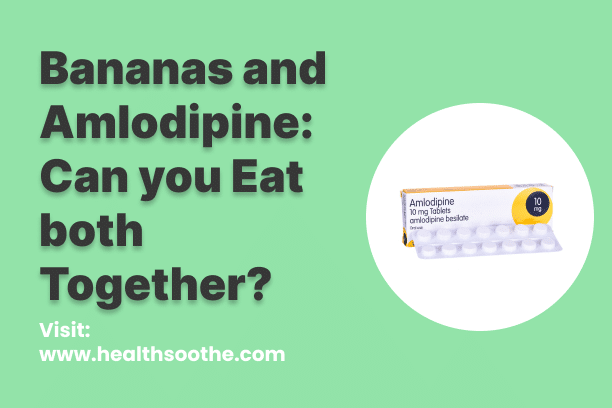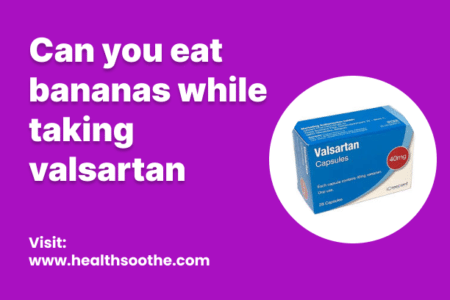Amlodipine operates as a calcium channel blocker (CCB), functioning to impede the influx of calcium into specific cells within the body. Through this mechanism, it contributes to the lowering of elevated blood pressure and alleviates chest pain. Additionally, it induces relaxation in the walls of arteries, thereby diminishing additional stress on the heart.
Usages
Amlodipine is primarily employed for:
- Managing and preventing elevated blood pressure.
- Alleviating chest pain.
- Diminishing the likelihood of stroke and heart attack in individuals with coronary artery disease.
- Mitigating the intensity of angina resulting from coronary artery spasm.
- Preventing migraine headaches.
Side effects of Amlodipine
- Ankle swelling
- Facial flushing (reddening of the face due to illness or strong emotions like anger)
- Edema (swelling caused by the accumulation of excess fluid in the body's tissues, commonly seen in legs and ankles)
- Somnolence (a feeling of sleepiness)
- Dizziness (sensation of faintness or feeling like your head is spinning)
- Headache
Connection between Bananas and Amlodipine
Bananas are a notable source of potassium, and the use of amlodipine has the potential to elevate potassium levels in your system. Elevated potassium, known as Hyperkalemia, poses risks if left unaddressed, leading to symptoms such as heart palpitations, chest pain, difficulty breathing, nausea, or vomiting. Therefore, it is imperative to regularly assess your potassium levels while undergoing amlodipine treatment.
Regarding the relationship between Bananas and Amlodipine, consuming bananas alongside amlodipine does not automatically translate to perilously high potassium levels. Research indicates that incorporating a daily banana into your diet does not significantly augment overall potassium levels in the body. Hence, while it remains crucial to monitor your consumption of bananas and other potassium-rich foods when using amlodipine, complete avoidance is not deemed necessary.
Pros and Cons of Bananas and Amlodipine
Pros of Bananas
- Rich in Potassium
- Nutrient Content
- Energy Boost
Cons of Bananas
- High in Sugar
- Caloric Content
Pros of Amlodipine
- Blood Pressure Regulation
- Chest Pain Relief
Cons of Amlodipine
- Potential Side Effects
- Interaction with Certain Foods
- Interaction with Grapefruit
Differences Between Bananas and Amlodipine
Bananas
Consumed for their nutritional value, bananas provide energy, essential nutrients, and support overall health.
Amlodipine
Prescribed for medical purposes, amlodipine is used to regulate blood pressure and alleviate chest pain by affecting calcium channels in the blood vessels and heart.
Alternative to Bananas and Amlodipine
Alternative Foods to Bananas
Vegetables
Incorporate vegetables like cucumber, zucchini, or green beans as snacks.
Alternative Medications to Amlodipine
Other Antihypertensive Medications
Depending on the specific medical condition, alternatives like ACE inhibitors (e.g., enalapril, lisinopril) or beta-blockers (e.g., metoprolol) may be prescribed.
Can you eat Bananas and Amlodipine together?
In short, yes, it is acceptable to consume bananas while taking amlodipine. Nevertheless, bananas are rich in potassium, and since amlodipine also elevates potassium levels, there is a risk of Hyperkalemia. This condition may manifest as chest pain, nausea, vomiting, and difficulty breathing.
Additionally, it's crucial to be aware that amlodipine can interact with other foods, specifically grapefruit and orange juice. The consumption of these fruits or their juices can enhance amlodipine levels in the body, leading to potentially severe side effects. Consequently, it is advisable to avoid these foods during amlodipine medication.
While enjoying bananas and other high-potassium foods, it's essential to monitor potassium levels. Any signs of Hyperkalemia, such as weakness, fatigue, or muscle cramps, should prompt immediate contact with your healthcare provider.
Read Also: MP 447 Pill vs. Adderall: Key Differences and Which Medication is Better for You
What does research say about eating bananas while taking Amlodipine?
While there is limited research specifically addressing the interaction between bananas and amlodipine, we can derive insights by examining how amlodipine generally interacts with high-potassium foods.
Studies suggest that amlodipine, akin to other calcium channel blockers, may potentially interact with high-potassium foods, contributing to the onset of hyperkalemia. This condition is characterized by elevated potassium levels in the blood, posing a risk of potential heart rhythm issues.
As a precaution, it is advisable to maintain a well-balanced diet and refrain from excessive consumption of high-potassium foods, including bananas, while using amlodipine.
Determining the specific quantity of bananas that can be safely consumed with amlodipine requires further research. For personalized advice, it is recommended to consult with your doctor or a registered dietitian.
What Foods you should avoid while on Amlodipine?
When using amlodipine, it's crucial to be mindful of certain foods that can interact with the medication, potentially heightening the risk of adverse effects. Here's a list of foods to avoid while taking amlodipine:
- Salt substitutes: These substitutes may contain elevated levels of potassium, posing a danger for individuals on amlodipine.
- Grapefruit and orange juice: Consumption of these fruits or their juices can elevate amlodipine levels in the body, leading to severe side effects.
- Potassium-rich foods: While generally considered healthy, foods like bananas, avocados, and sweet potatoes, high in potassium, should be avoided or consumed in moderation when taking amlodipine or similar medications affecting potassium levels.
- Certain antacids: Some antacids with magnesium or aluminum hydroxide can interact with amlodipine, increasing the risk of side effects.
- Alcohol: Drinking alcohol while using amlodipine can elevate the risk of dizziness and low blood pressure.
- High-fat foods: A diet rich in fat can heighten the risk of side effects such as stomach upset and diarrhea.
Additionally, it's advisable to refrain from consuming large amounts of fluids or eating substantial meals simultaneously with amlodipine. Regular exercise is important, and caution should be exercised when taking herbal supplements. Always consult with your healthcare provider for personalized advice.
What should I eat when taking amlodipine?
There are no strict dietary restrictions when taking Amlodipine. You can continue enjoying your regular meals and beverages.
However, maintaining a healthy and balanced diet is advisable to support Amlodipine in managing high blood pressure and heart conditions effectively. Including a variety of fruits, vegetables, lean proteins, whole grains, and low-fat dairy in your diet can be beneficial.
It is recommended to avoid processed foods and those high in sodium, as they may contribute to elevated blood pressure levels. Additionally, staying well-hydrated and incorporating regular exercise can enhance the medication's efficacy.
For a personalized dietary plan that aligns with your health needs while taking Amlodipine, it is essential to consult with your doctor or a registered dietitian. They can provide tailored advice based on your specific health situation.
Potential risks of consuming bananas with Amlodipine
While it is generally considered safe to consume bananas while taking amlodipine, it's important to be aware of potential risks. Here are some associated side effects with the combination of eating bananas and amlodipine:
- Hyperkalemia: Consuming an excessive amount of high-potassium foods, including bananas, may elevate the risk of developing hyperkalemia, characterized by elevated potassium levels in the blood.
- Hypotension: Bananas and other high-potassium foods can potentially lead to a drop in blood pressure, resulting in symptoms such as dizziness and lightheadedness.
- Interaction with herbs: Certain herbal supplements may interact with amlodipine, increasing the likelihood of side effects. It is advisable to consult with your healthcare provider before incorporating any herbal supplements into your routine while taking amlodipine.
Conclusion
Consuming bananas and amlodipine simultaneously is generally considered safe, but it's crucial to be mindful of potential risks. Consuming excessive amounts of bananas or other high-potassium foods may heighten the risk of hyperkalemia and could potentially interact with other medications in your regimen.
To ensure personalized guidance for your situation, it's advisable to discuss your diet, including the intake of bananas or other high-potassium foods, with your healthcare provider. They can offer specific advice tailored to your health needs.
Additionally, certain foods, such as salt substitutes and grapefruit juice, should be avoided while taking amlodipine, as they may increase the risk of side effects. If you have questions regarding dietary restrictions while on amlodipine, consulting with your healthcare provider is the best course of action.


